Demonstrating collective leadership on emerging global environmental concerns, scientists from South Asian countries have released a regional report on the status of policies dealing with nitrogen (N) pollution in South Asia. Four countries have also released their national reports (Bangladesh, Sri Lanka, Maldives, and Nepal). These reports document the policies available to counter the high and rapidly growing threats that N pollution poses for the environment, climate change, food security, human health and the economy in South Asia. They are a first step in raising awareness of the problems of nitrogen pollution, and they identify key areas for urgent action.
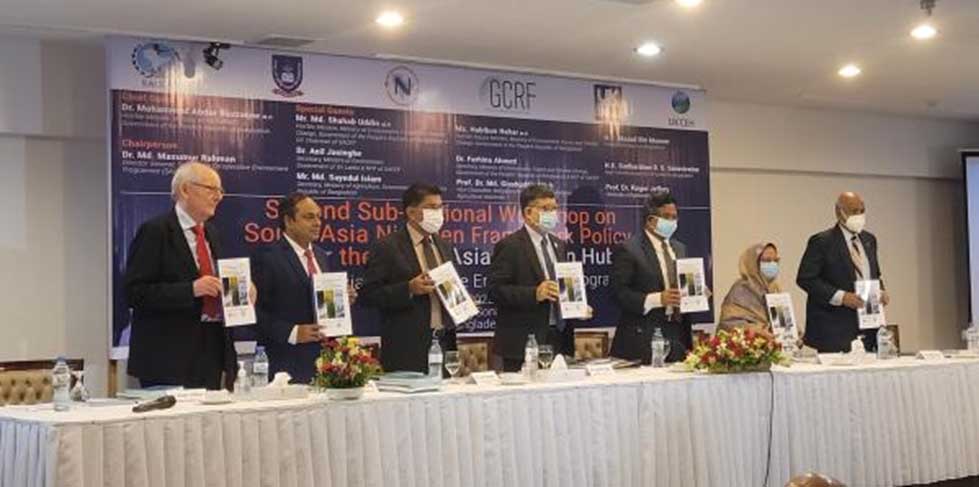
The policy reports were released in a meeting in Dhaka today (22 June 2022) called by the regional intergovernmental body, South Asia Cooperative Environment Program (SACEP). The regional nitrogen policy report was released by the chief guest Dr. Muhammad Abdur Razzaque, Hon’ble Minister, Ministry of Agriculture, Bangladesh. He stated that agriculture is the main livelihood in the South Asian region where nitrogen management is challenging for crop production and environmental pollution. Dr. Razzaque also said that it is the high time for us in South Asia to cooperate and collaborate more concretely to develop sustainable nitrogen management for ensuring food security and environmental sustainability in the region.
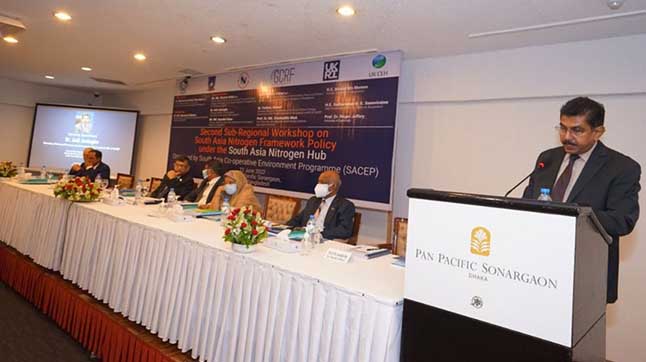
Dr. Anil Jasinghe, Secretary, Ministry of Environment, Sri Lanka participated the event as a special guest of the SACEP.
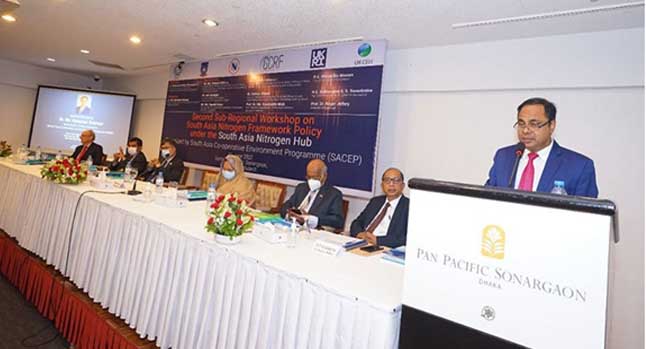
“This is a historic moment for South Asian cooperation to develop an evidence-based policy approach to tackle nitrogen pollution. We thank our partners across South Asia and the UKRI-GCRF-SANH project for making this possible” said Dr Masumur Rahman, DG, SACEP, and the Chair of the today’s auspicious event.
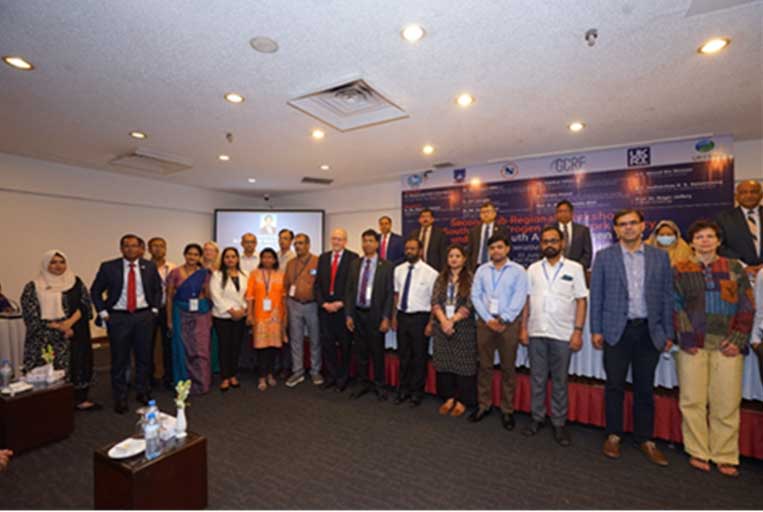
“One of the major researches program of SANH is to build the policy arena for nitrogen in South Asia. These status reports are an important output, based on the last three years of work, which will help in catalyzing informed interventions over the next 2 years” said Roger Jeffery, a Principal Investigator of the SANH project and Professor at the University of Edinburgh, UK. “It is such a great pleasure to work with South Asian countries, as nitrogen is so high on their agenda,” he added.
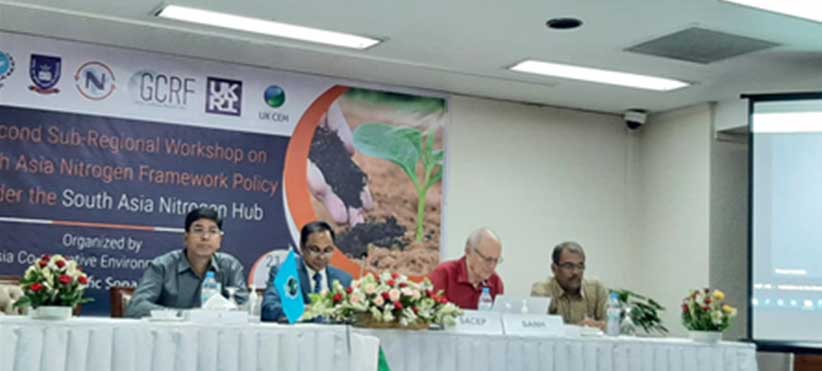
SANH brings together over 30 South Asian institutions, including universities, institutes and NGOs. Several South Asian countries, including Nepal, Sri Lanka and India, are already working to act across all the relevant ministries.
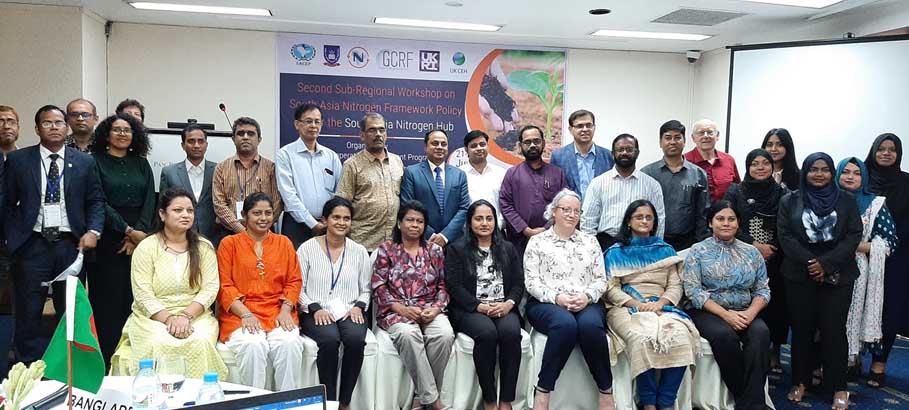
Mark Sutton, the project director of SANH and professor at the UK Centre for Ecology & Hydrology (UKCEH), said that “South Asia is the only region that has led the global intergovernmental action against nitrogen pollution with two UN resolutions on sustainable nitrogen management. The first resolution originated from a meeting of South Asian partners in 2017 and was piloted by India in the 4th UN environment assembly in 2019. The second resolution was piloted by Sri Lanka in the 5th assembly held recently in March 2022, a few months after the President of Sri Lanka hosted a nitrogen event during the COP26 deliberations in Glasgow during Oct-Nov 2021”.





